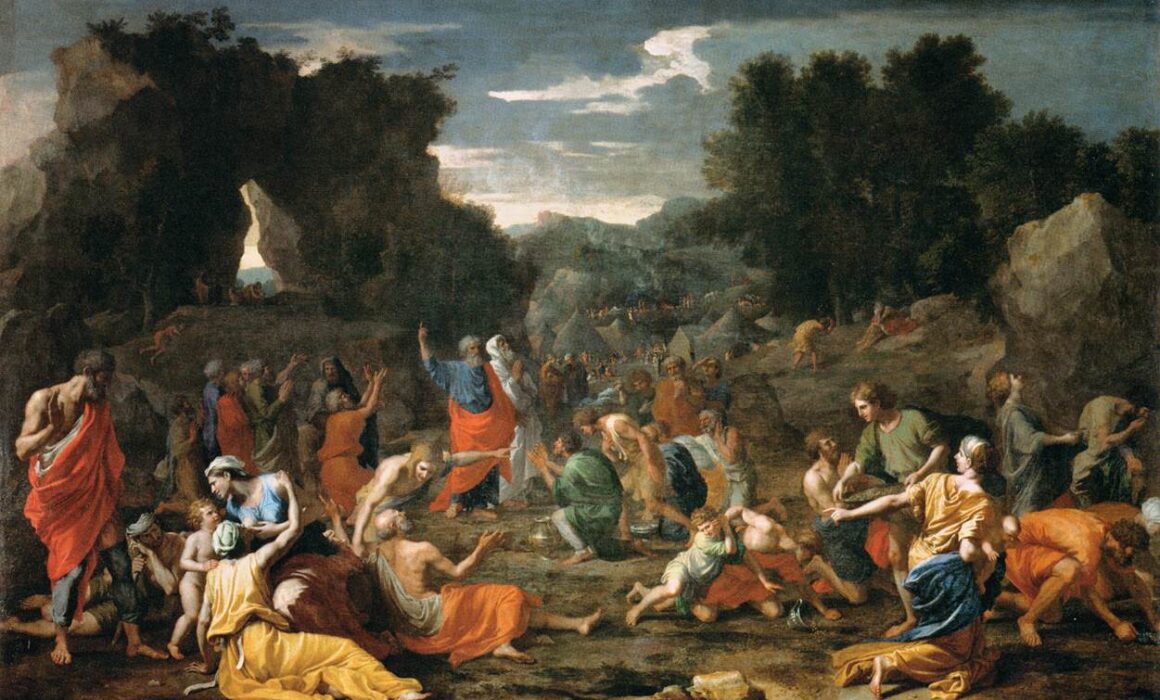Meditation for the Second Vespers of Lent
‘If your enemy is hungry, give him bread to eat.’
+INJ+
There is nothing and no one that we hate more than God. Indeed God is our first enemy, and the reason why is obvious.
The fact that there is a God by definition limits our freedom, or what we call freedom; our freedom to sin, to do what is shameful.
He tells us to not covet, though most of our life is made up of desiring what we cannot afford. He tells us not to angry, though being angry is a natural part of American democracy. He condemns abortion, unnatural relations, pornography; sins we say are victimless, by which we mean the victim is either ourselves, or our neighbor who is harmed without scars.
He tells us not to hate, and nothing comes to a man more naturally than to hate the one who has wronged him. As the poet says ‘tickle us, shall we not laugh; prick us, shall we not bleed; wrong us, shall we not revenge?’
God indeed limits our freedom, our liberty to sin, which is our slavery to Satan. The Lord damns our bondage to Satan, the god of our world, and for this we are aggrieved, for we love that god, we love that slavery, even as the Hebrews longed to return to their bondage in Egypt.
Yet God has every reason to take revenge upon us, His creation, for we hated Him because He first loved us.
Having made us in the Garden as viceroys over His entire creation, inheritors of His world; we knew nothing but the desire to know good and evil. So we rebelled against heaven, and ate of the tree, and knew that God intended good, and that we intend evil. With this, we knew shame and nakedness, both of which we are tempted toward day by day. Then with Cain we knew bloodshed and murder, the daydream of every man’s youth.
We knew lovelessness as Cain denied Abel, even as we deny our friends, relatives, spouses, and neighbors, whenever they become inconvenient.
In the Exodus, we denied gratitude, for we demanded more than what was needful; and in the Golden Calf, we denied God, for we did not find the invisible God needful enough.
The Israelites worshiped Molech, for Molech promised more wealth than the Lord, if only one sacrificed a child. The Israelites worshiped Asherah, for Asherah promised more children, if one only sacrificed one’s soul. And we worship these idols with the Israelites, for they give to us the whole world, and lose us only our own soul, the soul that the Lord loves; the soul that the Lord demands; this Lord that we abandon, because he promises only suffering.
Our God once came to save us. He was made man, a man named Jesus, who felt compassion for our lost race. He healed our sick; He fed our hungry; He raised our dead. And we were happy in these things. But while doing such miracles, He demanded that we take bare the yoke of our suffering, and follow him. Follow Him into His Passion, into His death, into hell; and ultimately into His resurrection, into His ascension, to be with His Father, who is in heaven, that we may be with Him forever.
We did not want to suffer, even if heaven was promised. So we hewed for God a cross, and killed Him upon it. We made Him bleed, we made Him cry, suffer, grieve. For this is the God that asked us not to hate, and hate was all we had for Him.
Now man has murdered the Son of God, and pierced His hands and feet, His back and His brow.
‘Prick us, shall we not bleed? Wrong us, shall we not revenge?’
Shall God not take His revenge against us for having killed Him upon a cross? It is written, ‘Vengeance in mine, saith the Lord, I shall repay.’
Perhaps He rose again to take His revenge upon us; perhaps that is why the disciples were so afraid, for when He rose, they did not see the friend who served them, but the enemy whom they abandoned.
Yet the Lord did bring hell with Him from the grave, but a meal. How could He not? For it is written: ‘If your enemy is hungry, give him bread to eat.’
We hunger and thirst after righteousness, for we have none of our own. We starve, and so Him who we have made our enemy, the Lord of all, gives us His flesh as bread, and His blood as wine, that we may not only starve, but be full, and only be full, but joyful.
Even as we eat His flesh and drink His blood, we are full of resentment toward the life He has given us, the family He has burdened us with, the health He has tormented us with. We leave this sanctuary full of such resentment. Yet His flesh and blood He still gives us, for food, and for joy, for He knows His own word:
‘Do good to those who hate you.’
+INJ+



